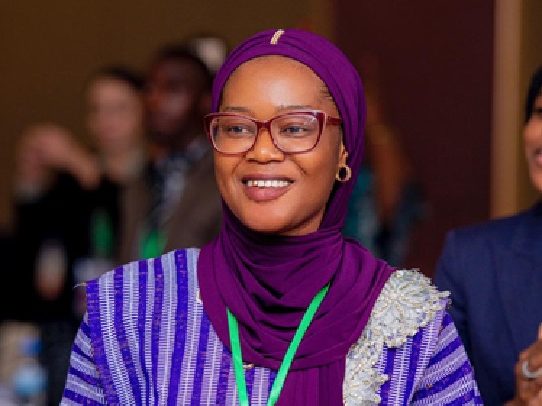Introduction
As Ghana prepares to go to the polls on December 7, 2024 for both the presidential and parliamentary elections, the two dominant political parties, the New Patriotic Party (NPP) and the National Democratic Congress (NDC) have presented their manifestos to the public for scrutiny and consideration.
A prefatory point to note is that Ghana was the first country to sign the Convention on the Elimination of All Forms of Discrimination Against Women (CEDAW) in 1980. In 1990, Ghana stepped foot as the first country to sign the United Nations Convention on the Rights of the Child (CRC). In 2004, again, Ghana became the first country to sign the Protocol to the African Charter on Human and Peoples’ Rights on the Rights of Women in Africa (the Maputo Protocol).
The NPP under President Agyekum Kuffour established the Ministry of Women and Children’s Affairs with a cabinet status to address the needs, challenges and concerns of women and children in Ghana. That giant effort has translated into today’s Ministry of Gender, Children and Social Protection (MoGCSP), but more needs to be done.
Children
The manifesto commits to streamlining and consolidating existing children’s committees to address children’s needs and challenges, promote their wellbeing and dignity, and protect their rights. This will improve the work of the committees to ensure a coordinated response to children’s needs and better outcomes for their wellbeing. The engagement and constitution of various stakeholders spanning education, health, and social protection in these committees will further ensure the efficient use of expertise and resources, intensify their work and impact, and enhance accountability for children’s rights and welfare at the district and regional levels throughout the country.
A comprehensive digital child protection and tracking system will be implemented to link all relevant databases of children, to protect them from child trafficking, abuse and streetism. Such a system is also important to track missing children, and protect their presence online.
Ghanaian parents and guardians are to be reminded of the country’s duty to protect its children and the need to put in place systems that ensure children have access to resources, services and support they need to thrive in the face of their vulnerability. This, coupled with a published register of those convicted of child offences will serve as a deterrent and hold offenders accountable for their crimes against children.
Gender
The long journey to the passage of the Affirmative Action (Gender Equity) Bill into an Act which has now been assented to by President Nana Akufo-Addo into law should not travel another decade in its implementation. That is why we need to pool our best efforts to ensure its effective implementation which this manifesto promises.
As a party committed to addressing gender inequality, Dr. Bawumia has fully embraced the Affirmative Action (Gender Equity) Law with a commitment to ensure a progressive representation of women in public life starting with 30% and with no intention to engage in gender washing or tokenism.
Clearly, the commitments to women’s empowerment which cuts across all sectors of the manifesto are neither face-saving nor integrity-restoring tactics with the gender card. Essentially, the commitment to the Affirmative Action (Gender Equity) Law together with all the policies carved for women and girls in the NPP manifesto is deliberately done to give them an escalator to the glass ceiling to realise their dreams and aspirations.
The manifesto also promises to implement a Women’s Trade Empowerment Fund (WoTEF) that will provide loans and grants to women in business. This will help in increasing wealth and alleviate poverty. In recent times, Ghana has been noted as one of the countries with higher women owned businesses and labour force participation.
Essentially, this targeted and timely support to women owned businesses will further address gender disparities in accessing funding, promote economic growth and encourage women and young women to venture into non-traditional businesses.
The transitional Kayayei Empowerment Programme, a flagship initiative championed by Dr. Mahamudu Bawumia, will be intensified to equip more kayayei young women with employable skills; by far, the most daring and bold intervention to address the issue of kayayei in our cities. So far, 1,800 young women have gained valuable skills in technical and vocational education and training which has given them an alternative livelihood, enhanced their entrepreneurial prospects as well as their socio-economic status.
The potential to curb all forms of abuse, exploitation, stigma, sexual harassment among others cannot be overemphasised. This initiative is certainly a stronger one than head-pan gifting, and a Bawumia-led government will continue to prioritise the dignity of the young women engaged in kayayei.
Conclusion
As a people, we must begin to fade-off all forms of scepticism of a future that is possible. Our democracy is a forward-ticking clock and the continuity of quality leadership matters. We need a visionary and futuristic leader because Ghana needs to travel largely on momentum imparted by forceful and innovative leaders who belong to its future rather than its past. We need a compassionate leader with a uniting spirit to propel forward our collective humanity.
We, therefore, should not continue to dilute our progress but rather preserve and stimulate a healthy vision that upgrades our current situation (a culmination of the visions of past governments) to a better one, because it is POSSIBLE with a BAWUMIA-led NPP government.
By Hikmat Baba Dua, Member – Gender, Children and Social Protection Manifesto Sub-Committee


